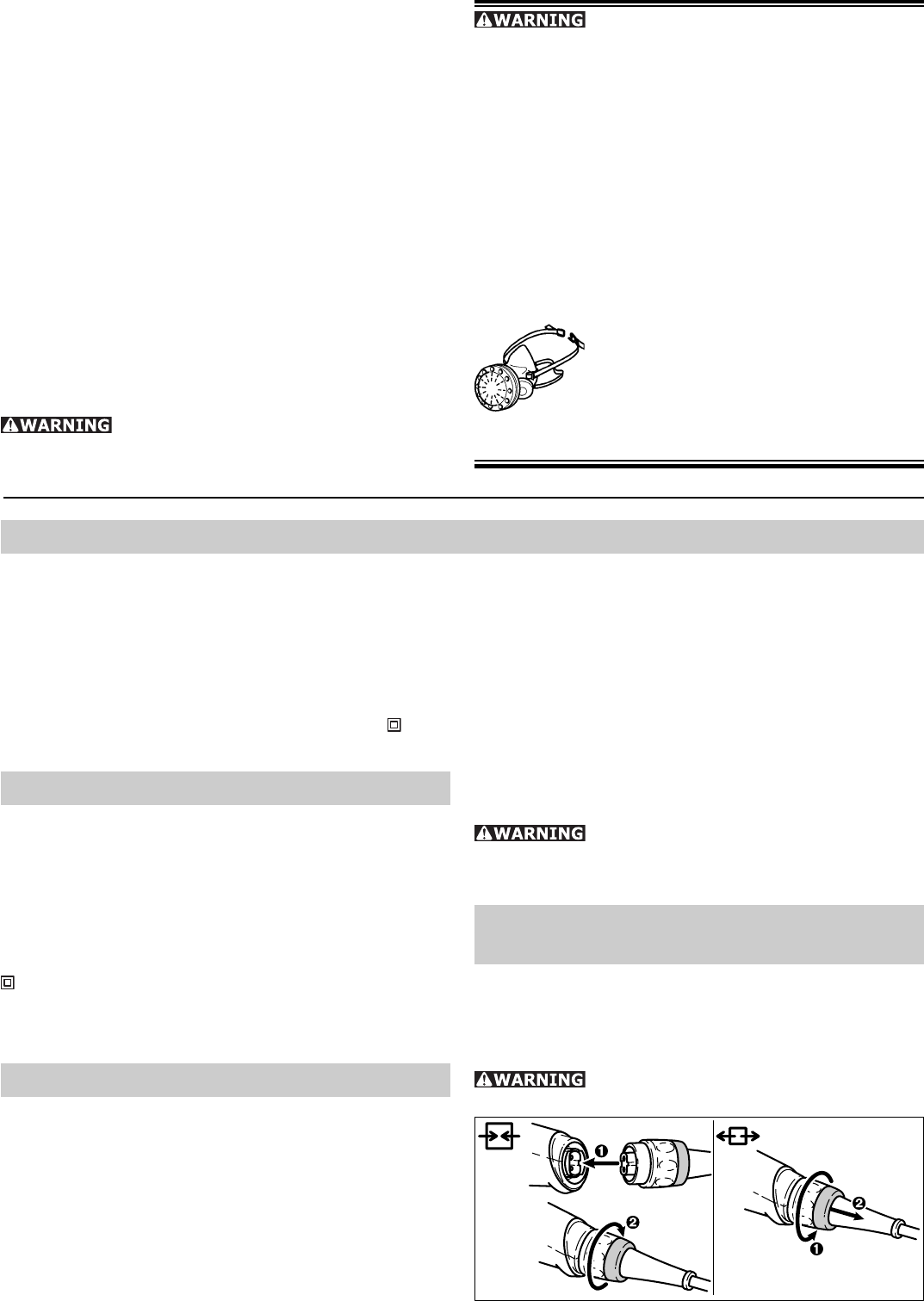
3
f) Keep cutting tools sharp and clean. Properly
maintained cutting tools with sharp cutting edges
are less likely to bind and are easier to control.
g) Use the power tool, accessories and tool
bits etc., in accordance with these instruc-
tions and in the manner intended for the
particular type of power tool, taking into
account the working conditions and the
work to be performed. Use of the power tool
for operations different from those intended could
result in a hazardous situation.
5) Service
a) Have your power tool serviced by a
qualifi ed repair person using only identical
replacement parts. This will ensure that the
safety of the power tool is maintained.
TO REDUCE THE RISK OF INJU-
RY, USER MUST READ AND UNDERSTAND
INSTRUCTION MANUAL.
Symbols
V volts
A amperes
Hz hertz
W watt
~ alternating current
n
0
no load speed
Class II Construction
rpm revolutions per minute
spm strokes per minute
Intended use
The sanders are designed for sanding wood,
plastic, composite materials, paint / varnish, fi lling
material and similar materials. Metal and materials
with an asbestos content must not be processed
with these tools.
The machine is particularly suitable for processing
smaller surfaces and overhead work because of
its size, its weight and its output.
The machines must not be damp nor operated
in a damp environment for electrical safety
reasons. The machines may only be used for dry
sanding.
The user bears sole responsibility for
any damage or accidents resulting from incorrect
use.
Electrical connection
and operation
The mains voltage must correspond with the
voltage on the rating plate!
See the following figure for connecting or
disconnecting the power cord of the tool.
Always switch the machine off before
connecting or disconnecting the power cable!
Technical data ETS 125 Q / ETS 125 EQ
Wattage 230 W
No load speed 15 000 rpm / 6 000 - 15 000 rpm
No. of strokes 30 000 spm / 12 000 - 30 000 spm
Sanding stroke 2.0 mm (0.079 in.)
Sanding base (delta form) Ø 125 mm (4.9 in.)
Weight 1.1 kg (2.4 lbs.)
Safety llevel
/ II
Various dust created by power sand-
ing, sawing, grinding, drilling and other construc-
tion activities contains chemicals known (to the
State of California) to cause cancer, birth defects
or other reproductive harm. Some examples of
these chemicals are:
• Lead from lead-based paints,
• Crystalline silica from bricks and cement and
other masonry products,
• Arsenic and chromium from chemically-treated
lumber.
The risk from these exposures varies, depending
on how often you do this type of work.
To reduce your exposure to these
chemicals work in a well ventilated
area and use approved safety equip-
ment, such as dust masks that are
specially designed to fi lter out micro-
scopic particles.


















